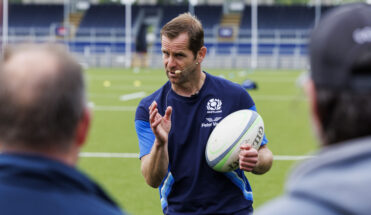Scott Takes On New Role
Stevie Scott, the former Scotland hooker, is to take on a new role. The 35-year-old Borderer has been appointed by Scottish Rugby as a specialist skills coach. His appointment is part of Scottish Rugby’s commitment to long-term player development and underlines the importance of life-long involvement in the game.Stevie Scott, the former Scotland hooker, is to take on a new role. The 35-year-old Borderer has been appointed by Scottish Rugby as a specialist skills coach. His appointment is part of Scottish Rugby’s commitment to long-term player development and underlines the importance of life-long involvement in the game. He will be working with the Scotland team, age-grade squads, the Scotland Women’s team and both pro-teams, Edinburgh and Glasgow Warriors, on lineout throwing. As part of his role he also has a responsibility to work as coach to National Academy players and to identify, train and deploy a team of specialist coaches to work throughout the country and assist in the development of throwing skills at all levels of the game. Scott played for 18 years, ten of them as a professional with both Edinburgh and the Borders, winning 11 caps for Scotland. He decided to hang up his boots at the end of last season after he had helped Gala win promotion to Scottish Hydro Electric Premiership Division 2. My decision to retire as a player is only really beginning to sink in. I want to concentrate on passing on my experience, he explained. Even while he was playing, Scott became involved in coaching with the Pathway side, Berwickshire Thunder and at club level with Selkirk. Grant McKelvey, Scottish Rugby’s Senior Performance Development Manager, whose remit includes specialist coaching, said: Our aim in the specialist skills department is to generate players whose skills in specific positions are finely honed. Stevie has acquired his knowledge as a player and identified while he was playing that he wanted to put something back into the game. He volunteered as a coach while he was playing and we’re now looking forward to him working with players and coaches at all levels of the game throughout the country to enhance throwing skills. Scott said: It was only towards the end of my career that I started to think about the principles of lineout throwing, which is obviously a big part of a hooker’s job. When I started as a youngster at Melrose I was throwing in one-handed to the lineouts, as that’s what hookers did then. The first hooker I can remember throwing in two-handed was Jim Hay at Hawick. Basically your balance is better and you have more control on the ball. Among the National Academy players that Scott tutors, six are front-row forwards, and he stresses that the emphasis here is on the principles of throwing, whereas when he works with hookers at pro-team and national level there are elements of fine-tuning of their technique. The experimental law variations (ELVs) are possibly putting a greater focus on the hooker hitting his jumper in the lineout at maximum height and we’re working hard on hookers becoming more accurate, he added. At the elite end of the game Scott reckons that for all specialist coaching is a relatively recent development you only need to look how golf coaches such as Bob Torrance can encourage minor technical adjustments that produce significant results, to see how rugby can benefit. Already, operating in partnership with the Scottish Institute of Sport, Scott is working with hookers in the pro-teams and National Academy on a throwing project. Basically each hooker does 30 throws at a target, 3.8 metres high, on the wall at the indoor facility at Heriot-Watt University. The throws are videoed from a variety of angles and the biomechanics are then analysed. We’re getting good results but in the next stage of testing we’ll be looking at throws performed at maximum heart rate. Testing under fatigue will enable us to see whether it’s , perhaps, technique that goes and also look at how to reduce the heart rate under pressure, something that, for example, Tiger Woods, works on in golf, he explained. Scott believes he was fortunate as a player to work under some top quality coaches such as Jim Telfer, Ian McGeechan, Tony Gilbert and Rob Moffat and hopes that his young charges especially will learn the importance of discipline as he did when he harboured then realised his ambition of playing for his country.
Tags
Related news
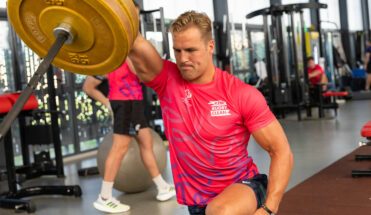
Scottish Rugby proud to support Clean Sport Week 2024
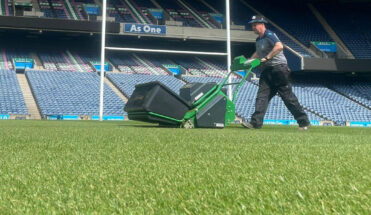
Dawson’s team making cuts in the right direction
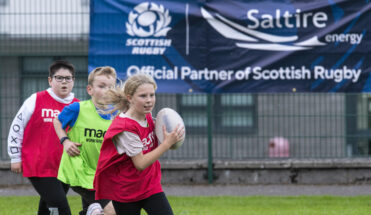
Saltire Energy announces key extended partnership with Scottish Rugby
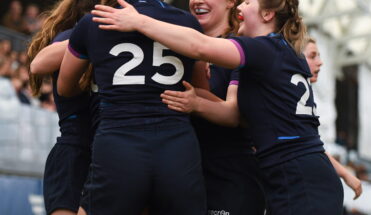
Scotland U20 to participate in first ever Women’s Summer Series

Scottish Rugby confirm appointments of key medical positions

Hollie Davidson to referee world champion Springboks this summer

Obituary: Eddie Renwick

Men’s Premiership final: Hawick look to complete double-double
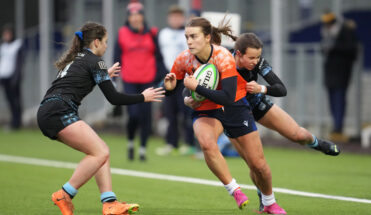
Celtic Challenge returns with expanded competition format
